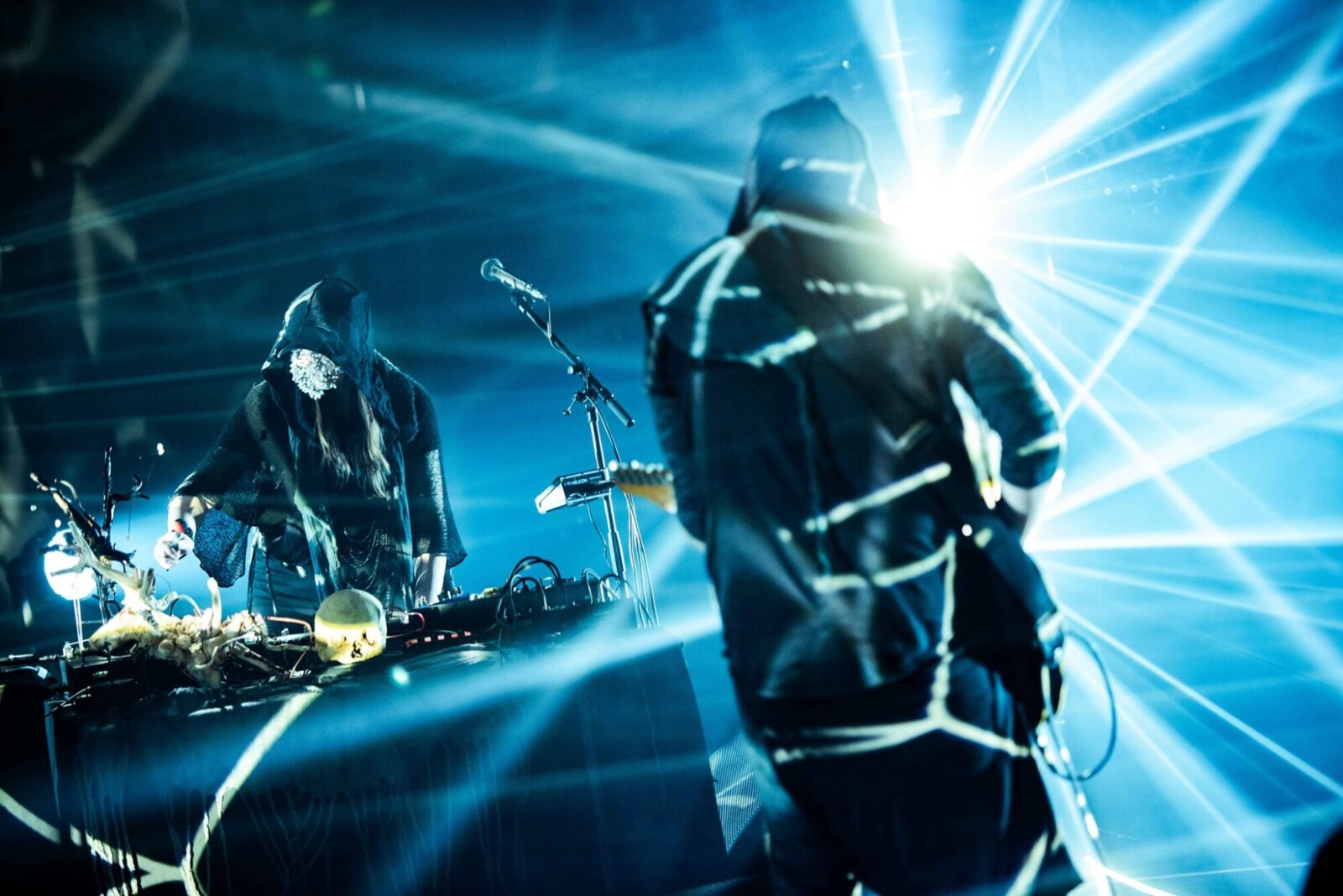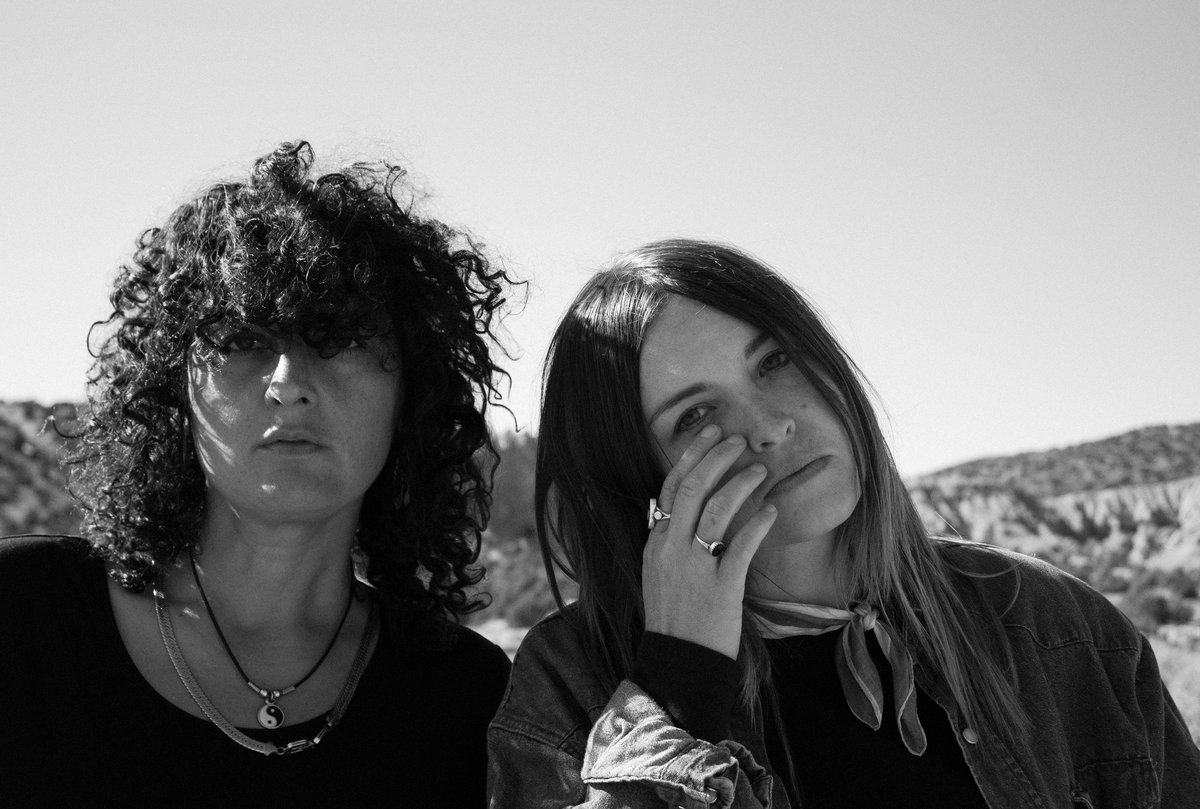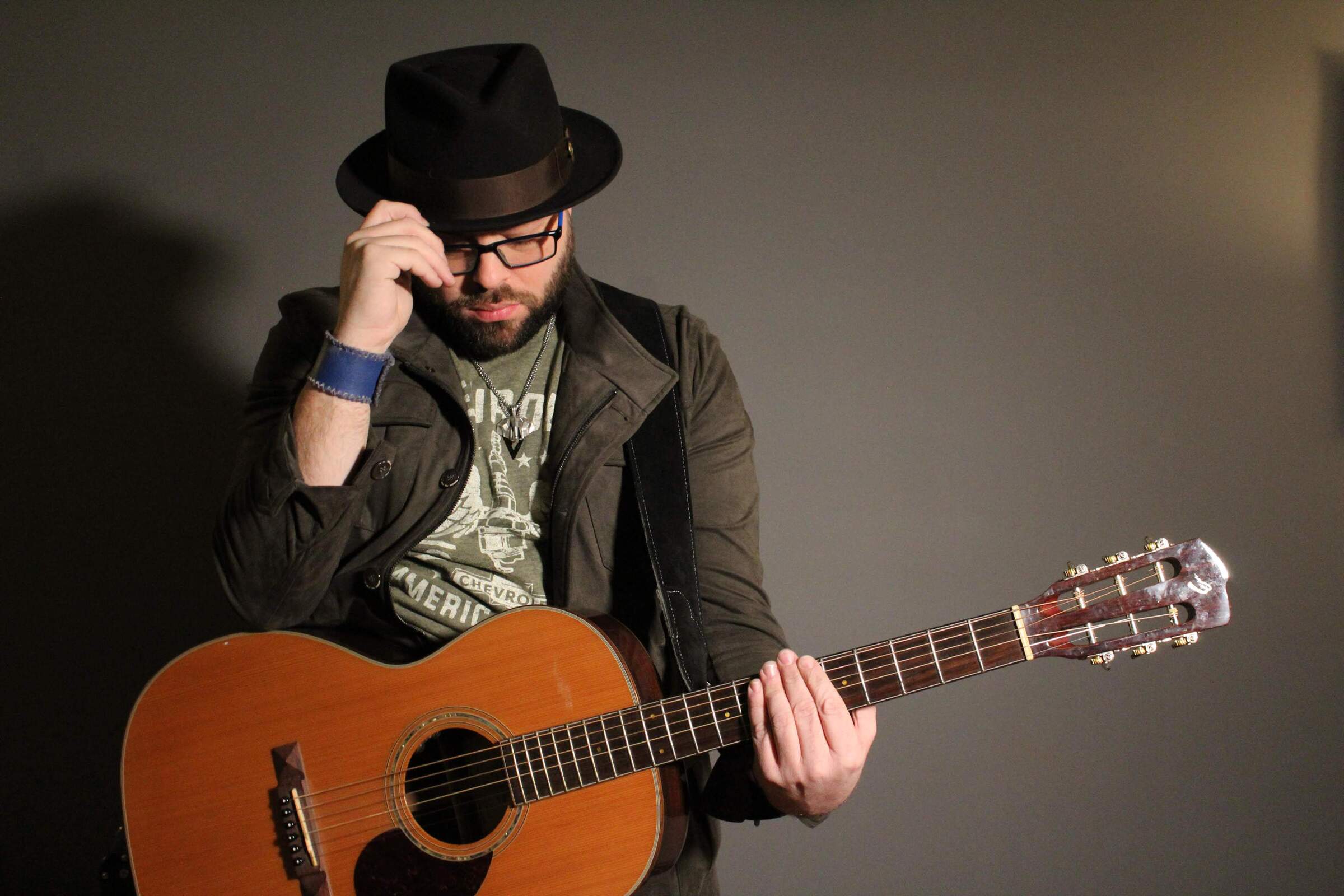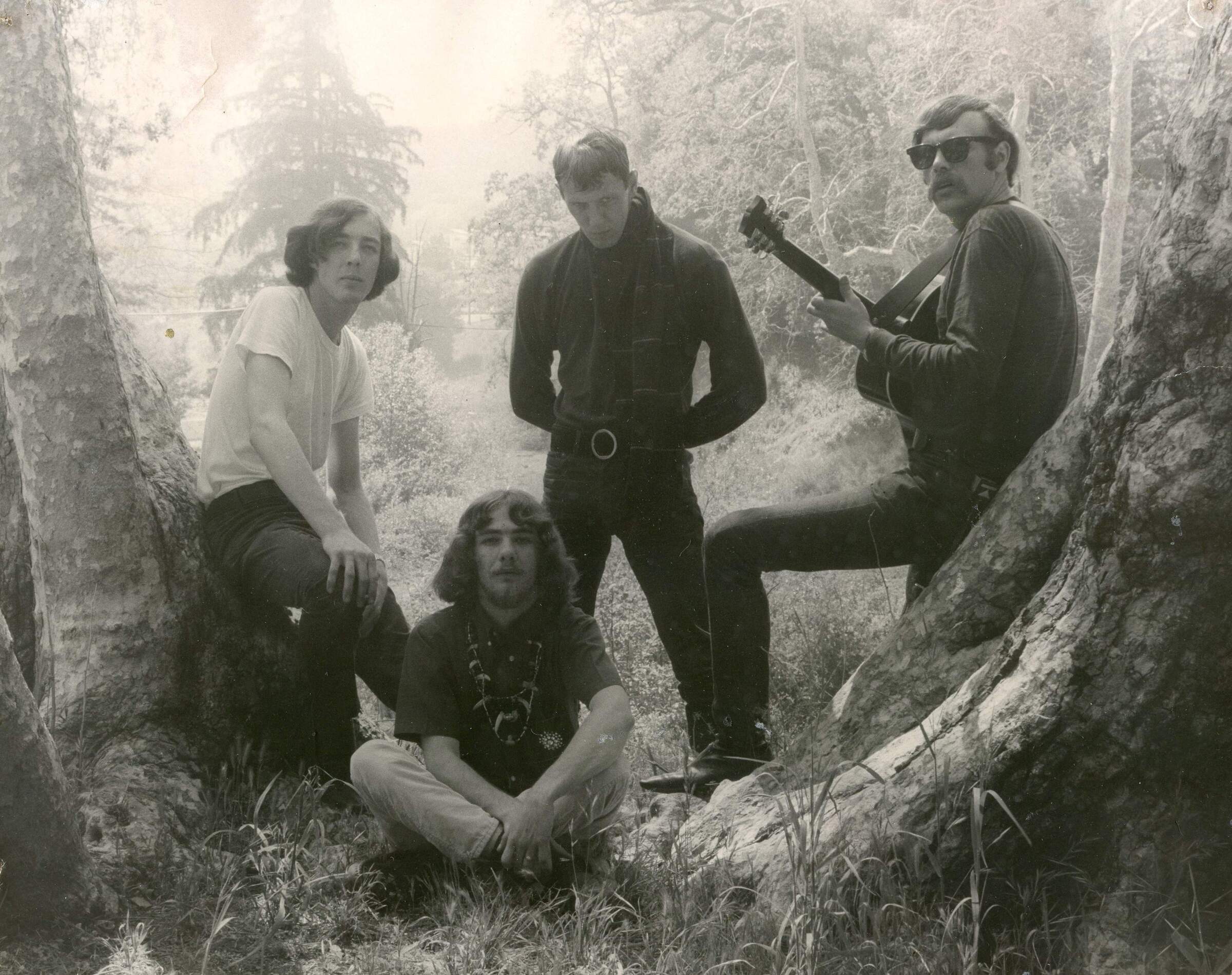Of Blood And Mercury | Interview | New Album, ‘The Other Side of Death’
Festivals and gigs scheduled are cancelled one by one, and recently Roadburn found a way to partly solve part of the problem. The festival’s crew has found a solution and held it in a virtual form. The duet of Olivier JLW (guitars, programming) and Michelle NCN (vocals, noisebox, tapeloops) already appeared here a few years ago and still I have problems how to introduce it to our readers. Some say it’s “electronic ghost pop” with ambient and “dark pop” pieces, so why not?
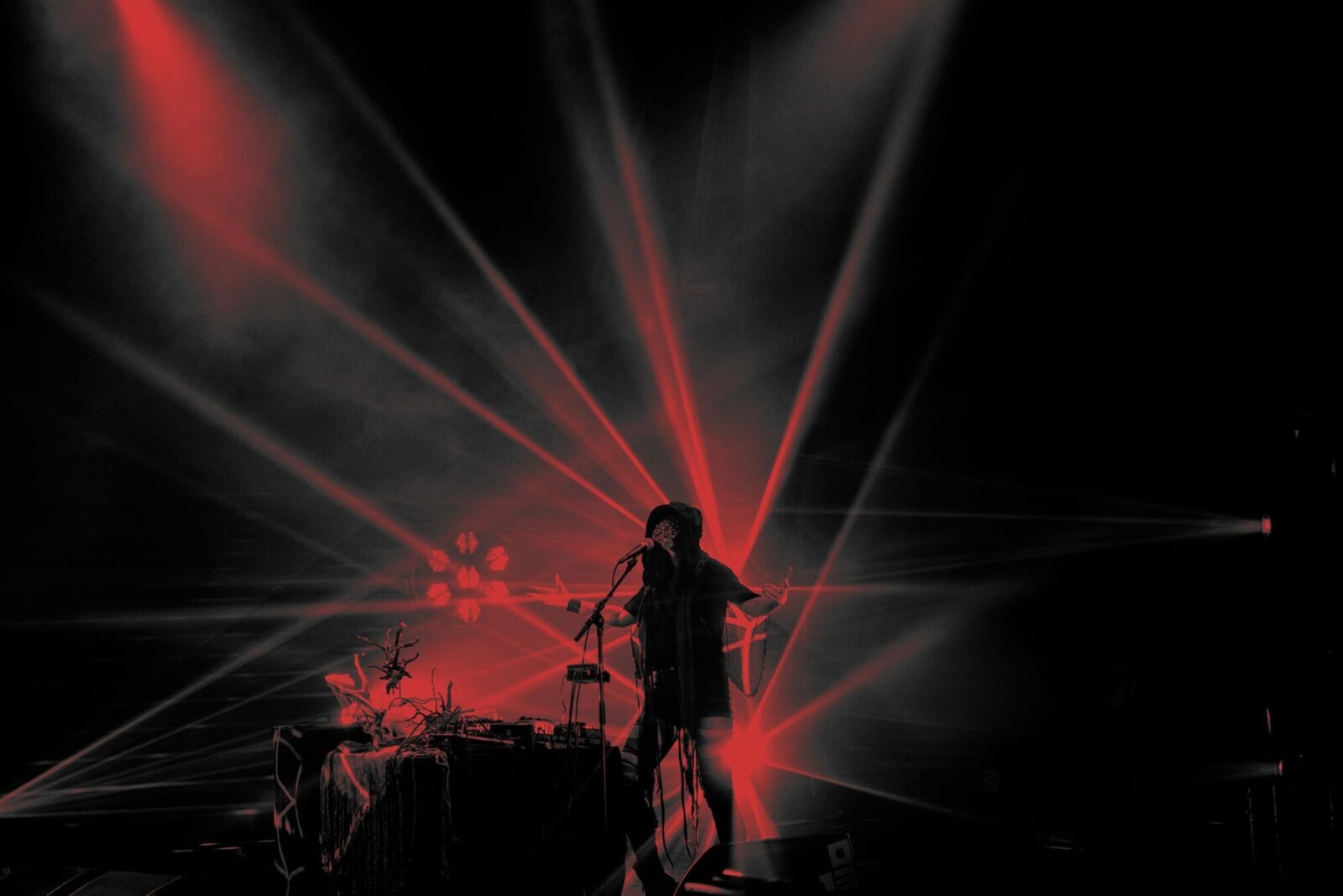
How did you spend this difficult period?
Michelle NCN: It was a hectic period personally; exams, moving to another country, and the self-release, we also started our own Bed & Breakfast, so our hands were full! As a band we are now focusing on our release but we cannot wait to start the new album. We already experimented with a new sound and ideas which we are very enthusiastic about. We are also thinking what we can do now that playing live becomes harder and harder. But these are all still ideas.
Bed & Breakfast? A kind of mini-hotels? Isn’t it a risky business when the quarantine doesn’t seem to stop and people don’t travel as often as before?
Yes, we are renting some rooms in a beautiful 1930 art deco house in the South of France. We basically left everything behind to start something new. We wanted change, we had the chance to do it so we went for it. If it doesn’t work then we’ll have an extra big place to make music and we’ll sort something out, we always do. For now, we were booked all summer. A lot of French in fact, who stayed in the country because of the Covid situation. So, things might turn very sour or they might turn to our advantage. And if they turn sour, we have to work around that. But it’s like that for most of us.
Didn’t you think to stop Of Blood And Mercury activity because of all things happening in the world in general and the musical industry particularly?
Olivier and I will always make music together and with our other projects. I don’t think that will ever change. We do have enough thought of the politically correct, the useless Covid measurements and absurd “vaccination passport”. We don’t feel this is the way a society should go. “Sick until proven”. Only a government that doesn’t trust it’s citizens but demands unlimited and unconditional trust does something like that. We’ve seen it before in regimes that absolutely nobody in the right mind remembers as pleasant. With that everything, even your own personal health, has become something political. Whatever you do or say; somewhere, someone has a problem with it. If people don’t like it, then we don’t play. We’re not playing that game. Whatever the course, literally no one can stop us from making music.
How long did you think before accepting an invitation for the Roadburn Redux festival? It’s a new format for many bands and actually it demonstrates Roadburn high ethic – the very fact they’ve solved the situation instead of closing any opportunity for the bands to perform their music.
We were instantly enthusiastic! With that, also concerned but highly driven, because we had about four to five months to write a whole commissioned piece and to rehearse it. We were also discovering new instruments, we made a noisebox, we worked with new programs, … Despite having a limited time, we really worked hard on everything we could, to make it special. And because of Covid restrictions we thought it was smart to play as a two-piece. Which meant that we had to produce already a part of the music for the backing track. Credit where credit is due: it was Olivier doing all that; writing the music, producing, making the noisebox… No idea how he did that while working full time and having released ‘Emptiness’ at that time too. I wrote the lyrics and vocal lines and I already had my hands full!
The other part of the answer is that we had no idea that this would be the final format for Roadburn. Neither did Walter when he asked us, since no one knew what was going to happen, even two weeks from then. So, we stayed in good contact and got updates about the show. First the plan was to have an audience, probably reduced. Step by step we came to the final format. Which I think was a good choice because it took away most of the risk of being cancelled and guaranteed having a (special) edition of Roadburn. A few weeks before the gig Walter said that we really have to think “filmstudio” rather than gig, although live. Livestreaming while having a concert is completely different than livestreaming with no crowd. This helped all the bands making certain choices for the livestream, while letting us all be completely free. Walter dealt great with all the changes and the info, and he really is dedicated to making things perfect, which is truly unique. He always informed us and took care of us the best possible way. We were in the hands of the best crew I have ever known and we are grateful for accepting. We also didn’t know when we accepted that we would have the video and audio at our disposal. This is of incredible value as we could on our own have never organized, paid for or found such a team for video/light/crew/audio. Despite the whole Covid situation being terrible, we were really blessed with the opportunity.
What’s about that noisebox you’ve mentioned? Did it change a lot for you? And did you have a chance to test it “live” before this show?
To explain it simple; we made a wooden box with a piezzo microphone in it. This wooden box somehow functions like the body of a guitar; sound resonates within it and the microphone in it picks it up. The sound is then amplified, just how you would do with an electric guitar for instance. With a guitar, it’s strings that make the notes. Here, we used a lot of items on the noisebox to create sounds. We used everyday elements of our time and our daily lives, like a spring, a spinner, a kalimba, … you could say these are artefacts of everyday human life. We also decorated this box with natural elements like stones and bones. If you manipulate these items by tapping on them or using tools to hit them they will make a sound that will resonate in the box. These noises are then sent to an effect pedal, so the signal is distorted. We took some time to find the right items that made interesting sounds and fitted to the concept or even to the esthetics of the box. And I took my time to experiment with them; learn to play notes on the box et cetera. So we rehearsed our set with it before playing live, not on a show but at home. With the pedals we could also loop the sounds et cetera. So, it did change a lot for me and us as a band, as we built an instrument and learned to master it as well. It’s a unique instrument so it’s up to us to sort out how it can be properly used. On the other hand, it leaves us so much freedom to experiment. We hope to use it more in the future for the next album as well. I’m actually very excited to explore the noisebox and it’s possibilities even more.
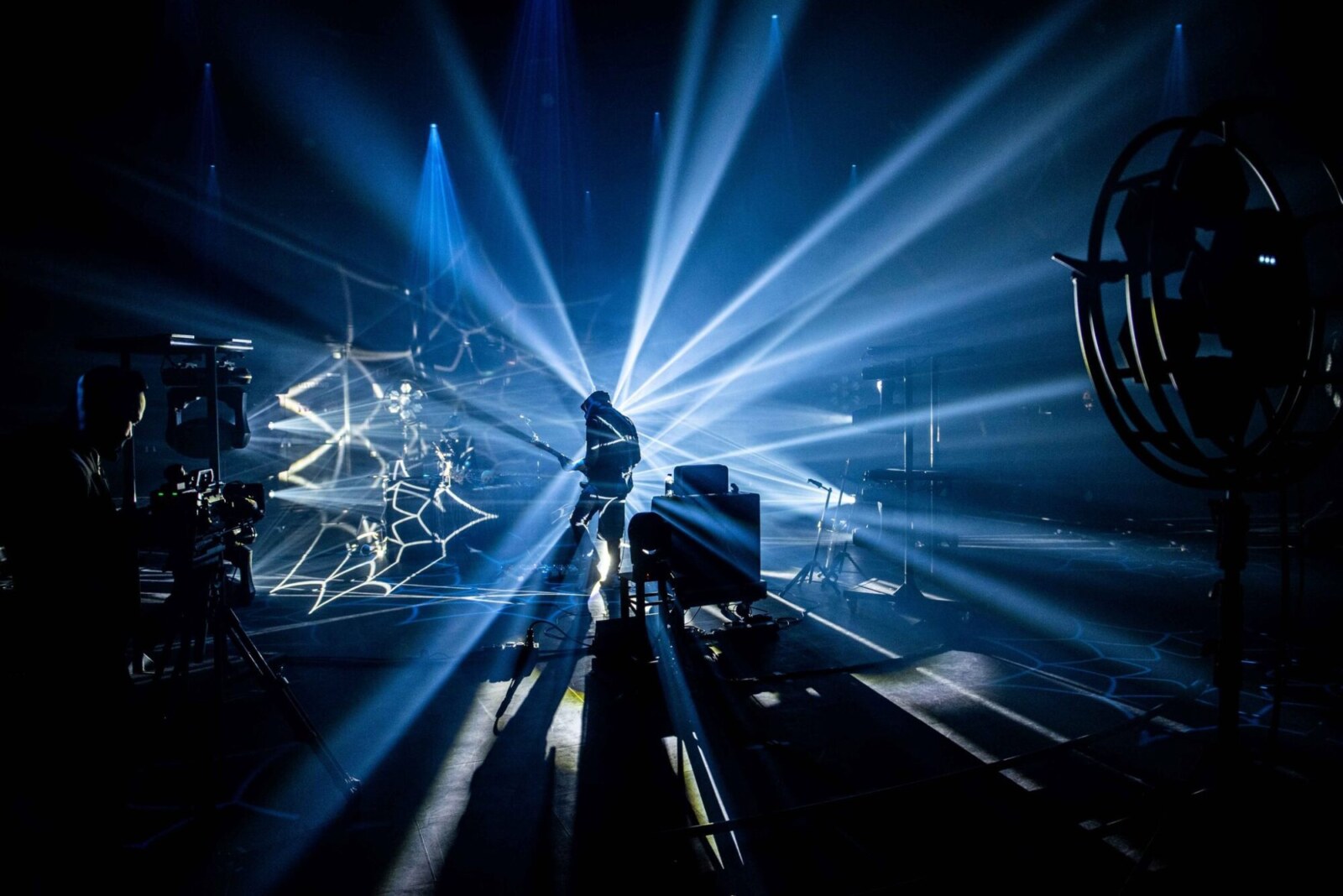
‘The Other Side of Death’ material you’ve performed during this live set is an exclusive commissioned piece written, performed and recorded at Roadburn. I’ve found only one familiar song on the album, it’s ‘Walk the Void’. How many new songs did you prepare for this set?
Yes, indeed ‘Walk the Void’ is “an oldie”. We thought it fitted really well in the set. The other six songs were entirely new. So, the commissioned piece consists of seven songs in total.
You once told me that “suffering” is a common element for all of your projects, and you seem to be unable to do otherwise. Did you write ‘The Other Side of Death’ with the same mindset or had something changed in your approach?
That’s a good question. Death obviously isn’t a pleasant thing in general and comes with a great deal of suffering. Especially for the ones left behind I would argue. But since we wanted to give another take on “death”, a more neutral format you could say, there is less suffering than you’d expect from me or from the topic itself. The set for instance starts off rather cold, becomes more neutral and is almost uplifting and full of relief near the end. Never with full happiness though, rather “happy sad”. The album/commissioned piece represents the first few seconds of death. It’s not the usual take on death and maybe therefore the other side is a good title in that perspective as well. You’re not only going to the other side but we are showing another side than the common “dark” one. Compared to all my previous work this is more spiritual, more neutral. It leaves more room to wonder, whilst Bathsheba’s album ‘Servus’ or Leviathan Speaks ’33 ways to suicide’ don’t leave any room for another direction. They steer directly into the dark.
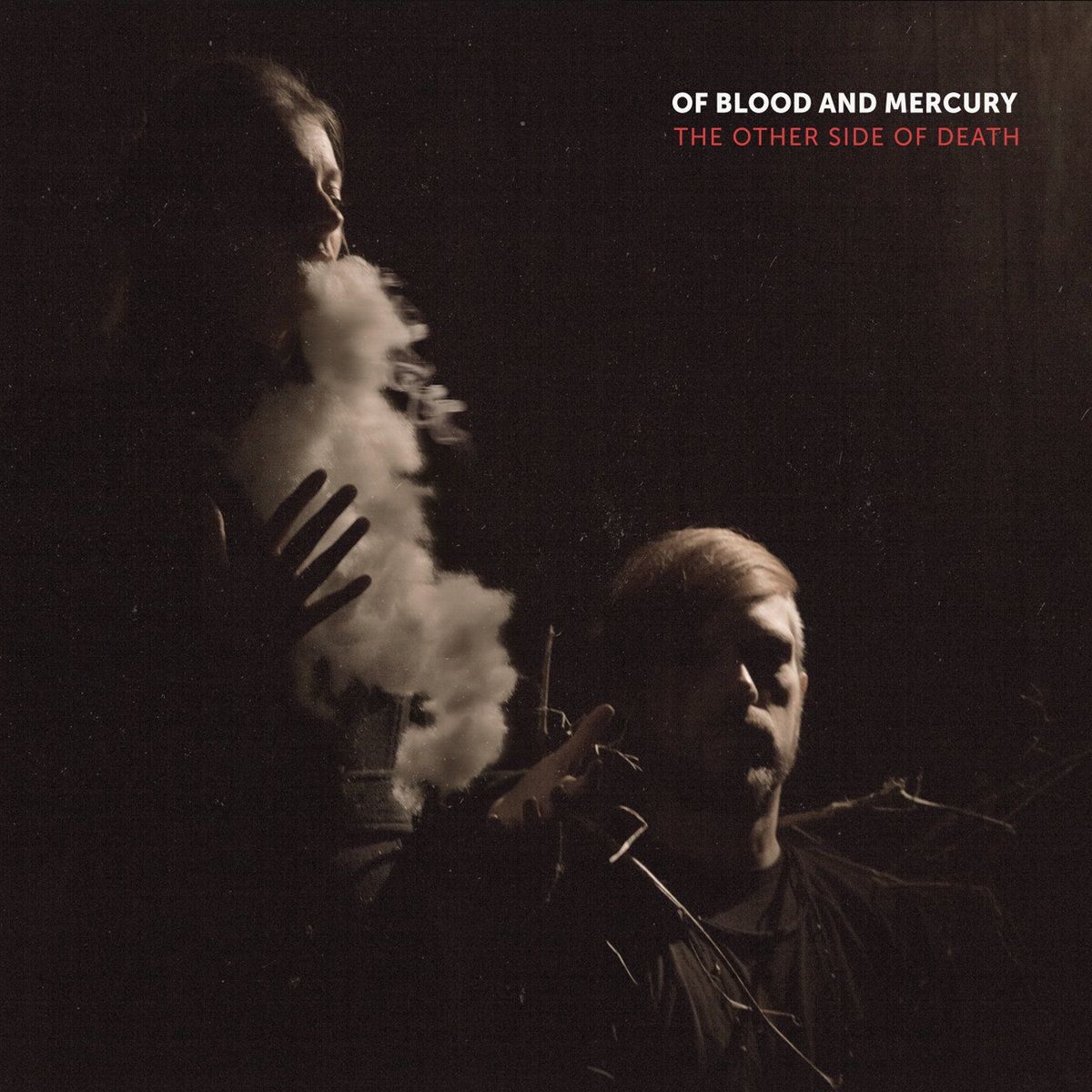
“We’ve forgotten to give death a place in life”
First few seconds of death? Do you connect that with some known spiritual concept? For example Tibetan Book of the Dead (thanks to Carl Yung!) reveals the stages of the final passage as a dangerous yet “fair”, almost optimistic process. You can’t escape it, but through the “right” mindset you can prepare for it.
Yes, these are exactly the concepts we are talking about. There are stages to go through but we firmly believe that you can in fact prepare for the big jump. There are so many scriptures that talk about it and Carl Jung is one of the most fascinating thinkers of the modern times who talks about that. Every big scripture is full of it, there are secret societies, poets, writers, inventors… Nikola Tesla, Rudolf Steiner, William B. Yeats, … to name some. The Romans, for instance; we are taught they were just entertaining people in their amphitheaters, but there is plenty of historical material that indicates that what they were often doing, was embodying death and explicitly doing this in front of as many people as possible. Now we somehow think that every culture before us were foolish people, lacking scientific knowledge. We think that more spiritual cultures are a bit behind on certain matters. I dare to argue that it is unique in our times and uniquely in the West that people have been so blinded by what they think their limited reality is and that they are completely cut off from the normal flow of life. Especially now with Covid you can see that; we are shocked when a sick 80 year old person dies of… anything really. We’ve forgotten to give death a place in life. I would argue that death is a form of life. In that insight we failed our album because we lack the concept of these absolute moments. We’re miles from that.
The title song’s lyrics sound quite… fatalistic, are some of your songs based on real events?
It’s hard to say. I think unconsciously, yes. I’ve been exposed to people near me dying from a very young age. Death was somehow always a big part of my life. At these ages, it’s of course a completely different concept than now. While death before was something dramatic it now is something more neutral for me. When I was young I was hoping to see my loved ones again, in the same form and relationship. Now I know, this is over. And when I realized this, it made me very sad for a second. It’s very hard to deal with death when you know the other person is gone forever. There is no heaven, no paradise where two lovers or mother and child et cetera are re-united, or at least not in the form we were told. It doesn’t work that way. But you also realize that when and wherever, on the other side of death, all our conditions don’t matter, because they don’t exist. We just don’t have the language, understanding and capacity to understand this fully.
The official press kit states: “Using distorted tapes from people who already crossed the other side, the duo delivers an otherworldly and moving performance”. May you give a clue what this statement means?
Olivier and I were experimenting with a tape loop recorder. We found some tapes of people who already died, since we know plenty of them hehe. And we sometimes found strange things on these tapes. Also bear in mind, the difference in behavior, language or life and habits that have changed in let’s say 20 years is so immense that listening to the history of the dead sounds somehow ghostly. We wanted to make this album very personal because this is a subject that is very deeply seeded within us and we found it somehow beautiful that through these tapes, death was also present in our album. It was wonderful to experiment with these sounds and voices and it’s immense what you can do with a little material, with a bit of the unknown, something that death offers as well to us people.
Speaking about differences between generations (20 years is a big gap)… You started in pretty old school metal bands and it seems young people aren’t involved too much in this side of music as before. There are new bands, new – to some degree – genres. And even a kind of return to “retro rock / metal sound” wouldn’t guarantee Death Penalty, for example, really “big” status nowadays. With whom do you speak through Of Blood And Mercury? What kind of feedback do you expect?
A band like Death Penalty might do well, but that’s not a good reason for me to start a project. Maybe I should think more commercially, I would be much further in life, but music is too sacred to me. It’s a good question to whom we are speaking, because we don’t really know who our fans are. I mean; you can imagen the perfect fan when you think about a band like Death Penalty, or Marduk, or Steel Panther, et cetera … But with us we don’t know who that person is. When you cross genres you are endangered of not touching an identity or even being mistaken of not having an identity because people can’t really place you. People like things they understand. I often feel attracted to music that I cannot place or people that are atypical so I’m not surprised I often end up with atypical music or people. I expect good feedback because we do good and intense work and if it sucks, we will be the first to admit this and start all over again without a problem. Of course one can discuss taste and there’s plenty of people who won’t like what we are doing. Maybe I won’t like what I’m doing now in a few years. But that is fine. I don’t expect much somehow, as in, I make music and I do what I like. I appreciate it when people reach out and I always try to answer everyone back. I’m grateful for what I get but I do not expect anything from anyone. We’re blessed with a freedom to be creative and have no restriction to please.
‘The Other Side of Death’ is self-released, limited to 100 copies and not downloadable through digital means… Well, do you plan to re-record this material later and re-release it?
We plan to keep it ultra-limited. Who knows we might release one or two songs afterwards but we felt this was the way to go, not just for ourselves but also for the fans. I would feel cheated if someone promised me an ultra-limited album and then put it out again, even on another format. So, we’ll stick with this.
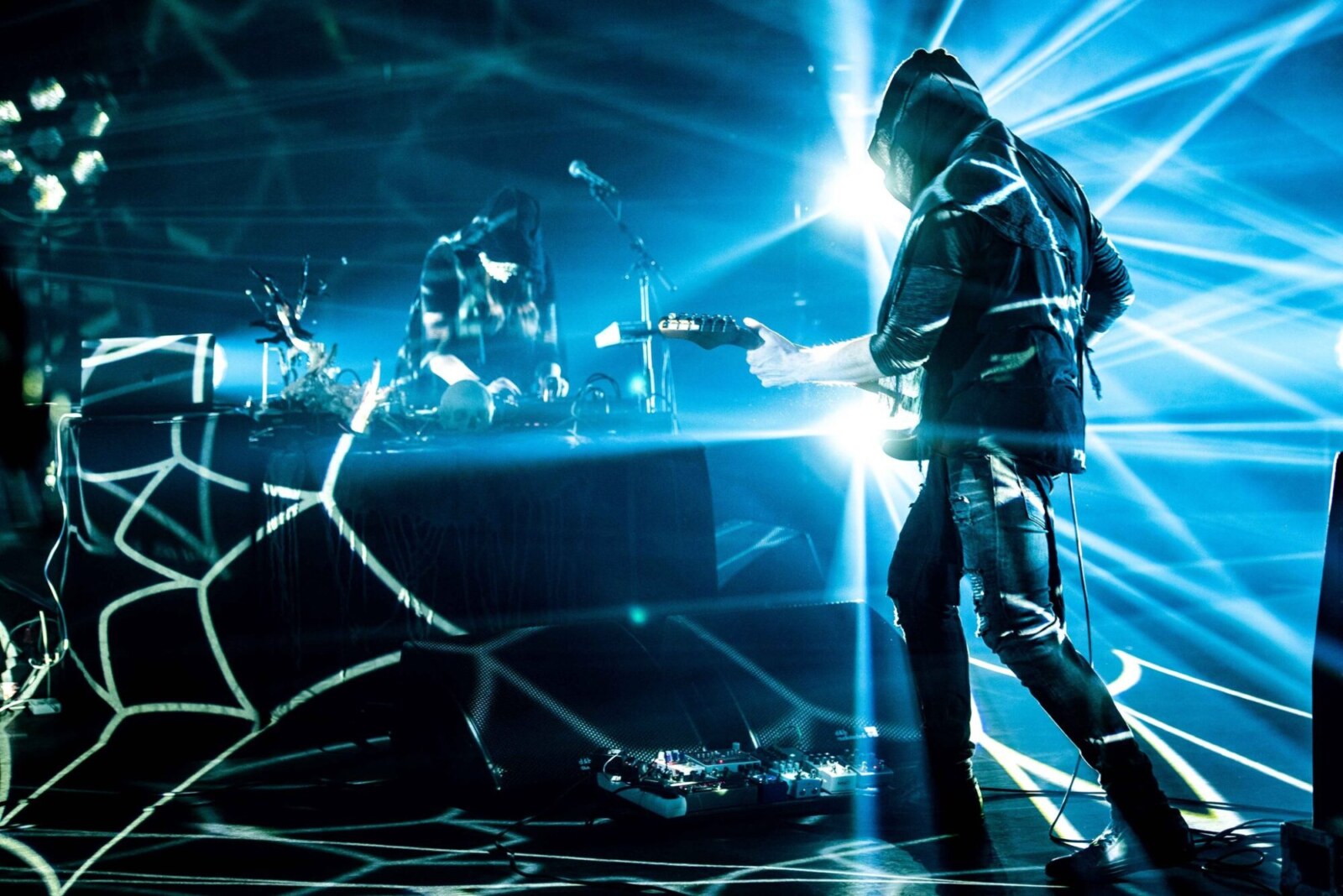
Michelle, what are your further plans for Of Blood and Mercury? Will you focus on that or do you have other creative priorities?
We are discovering some new sounds we really want to use for the next album. We also have a concept we want to work around, something esoteric and a bit in the vein of ‘The Other Side of Death’. We would love to do more with this visually as well. Once the albums for this release are sent, we feel that we can move on and move further.
Aleksey Evdokimov
Photo: Live at Roadburn Festival | Photo by Lotte Schrander
Of Blood And Mercury Facebook / Instagram / Bandcamp
Consouling Sounds Records Official Website / Facebook / Instagram / Twitter

